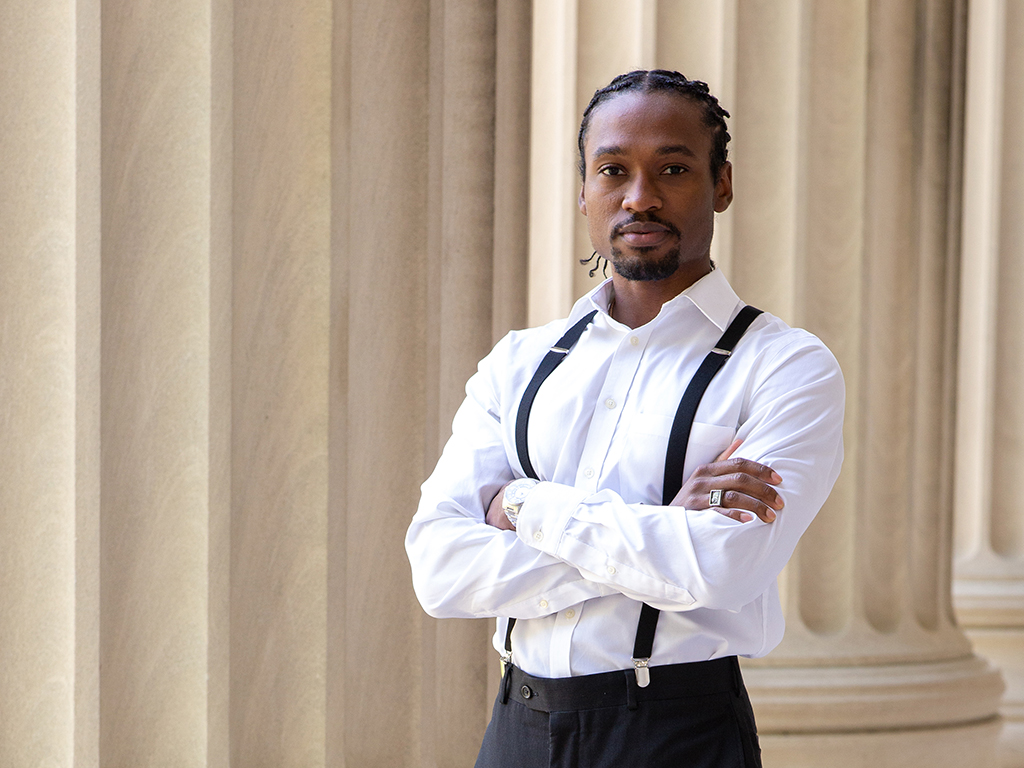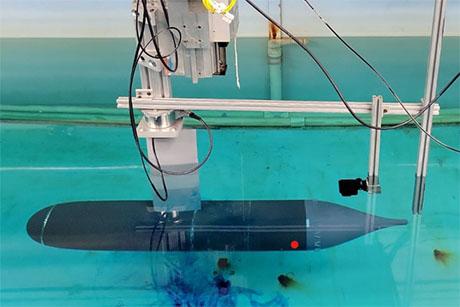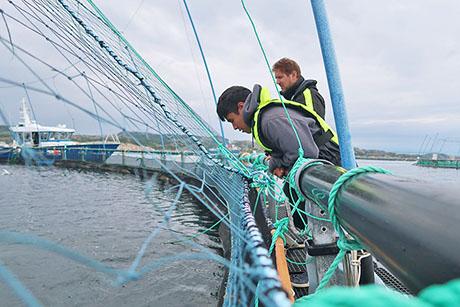Engineering Defense, with the Help of Butterflies
As a mechanical engineer at MIT Lincoln Laboratory, Phillip Daniel ’13, SM ’15, PhD ’22, conducts research for the US Department of Defense that involves exploring the deepest oceans and the farthest skies.
Today, 90 percent of the ocean floor is unmapped. To add to the current picture, Daniel is on a team that focuses on sonar bathymetry, which uses transducers to send acoustic signals into the ocean. If objects are in the signal’s path, the sound echoes back. The process he studies is called sparse aperture sonar, and it could enable improved underwater exploration for commercial industry and national defense.
Daniel also specializes in magnetic navigation, which could serve as an alternative to GPS for commercial enterprises and national defense. He uses monarch butterflies to explain. “They’re able to migrate long distances and find the exact forest that their ancestors were born into. How? One theory is that they’re able to sense the Earth’s magnetic field. They have a compass in their head, and they can use it to get where they want to go. The question is: Can humanity take advantage of the Earth’s magnetic field to accurately navigate without GPS?”
We can, he says, using iron and metallic deposits in the planet’s crust. They emit magnetic field ripples, “almost like a fingerprint,” that serve as a guide.
His fascination with engineering started when he was a teen in Durham, North Carolina, helping his dad work on used cars as a hobby. “I’d hand him tools and ask questions about what he was replacing and why. There was nothing that he couldn’t answer … I found it fascinating,” he recalls. His mother enrolled him in an out-of-district high school specializing in engineering, and he went on to earn three mechanical engineering degrees at MIT. He felt at home on campus, surrounded by like-minded students.
“MIT is a place where the students are nerdy, and they’re proud of it. I felt like that was a big part of my identity as well,” he says.
To help current students feel at home, Daniel mentors them through programs such as UROP, Summer Research Program, and Momentum, an interdisciplinary design course offered during IAP. “[As a student], I was more comfortable reaching out to mentors who had similar struggles as me. Either they looked like me or they were an underrepresented minority group,” he recalls. “I thought they would ‘get’ me more, and it made me more comfortable to ask them for help.” Likewise, he says, students today are “comfortable asking me for help because they see themselves in me.”




